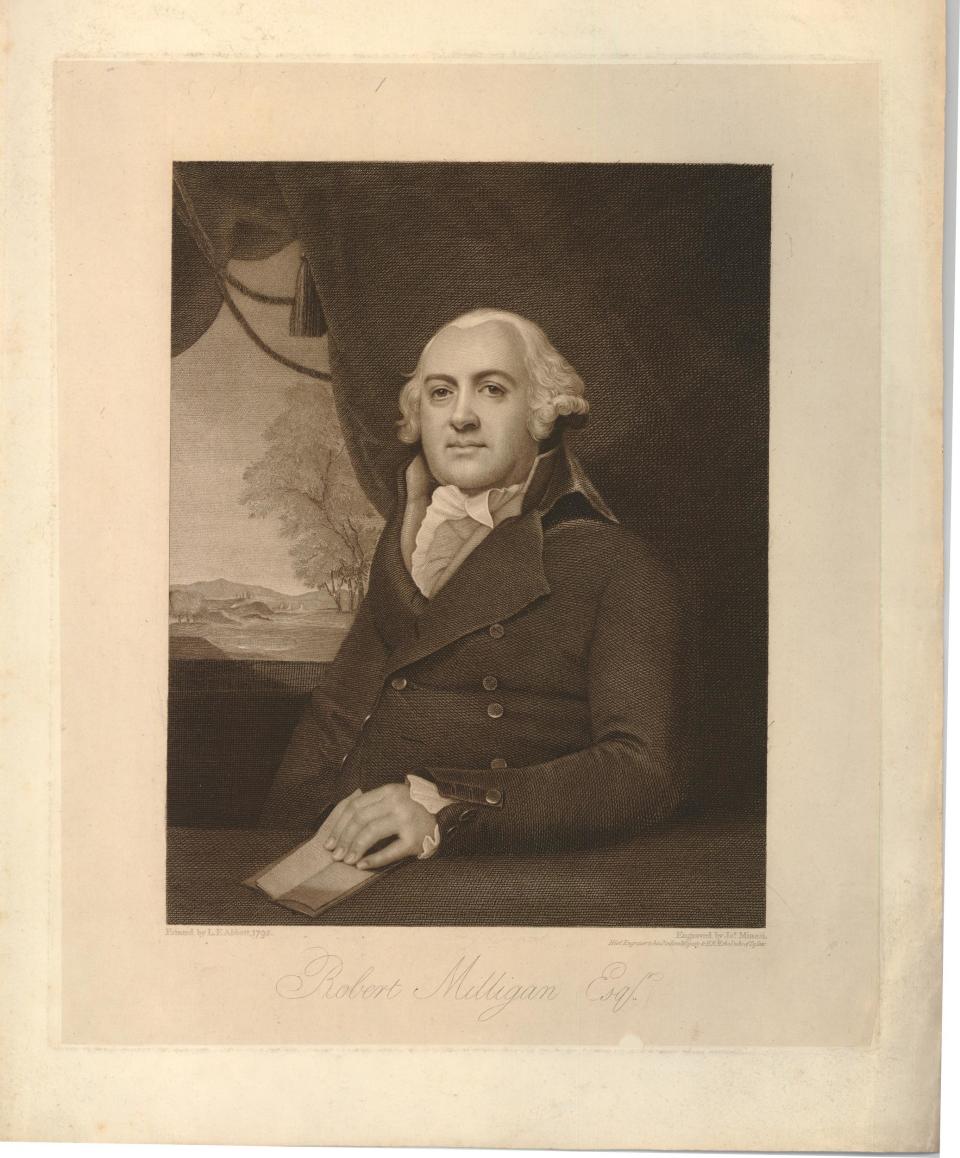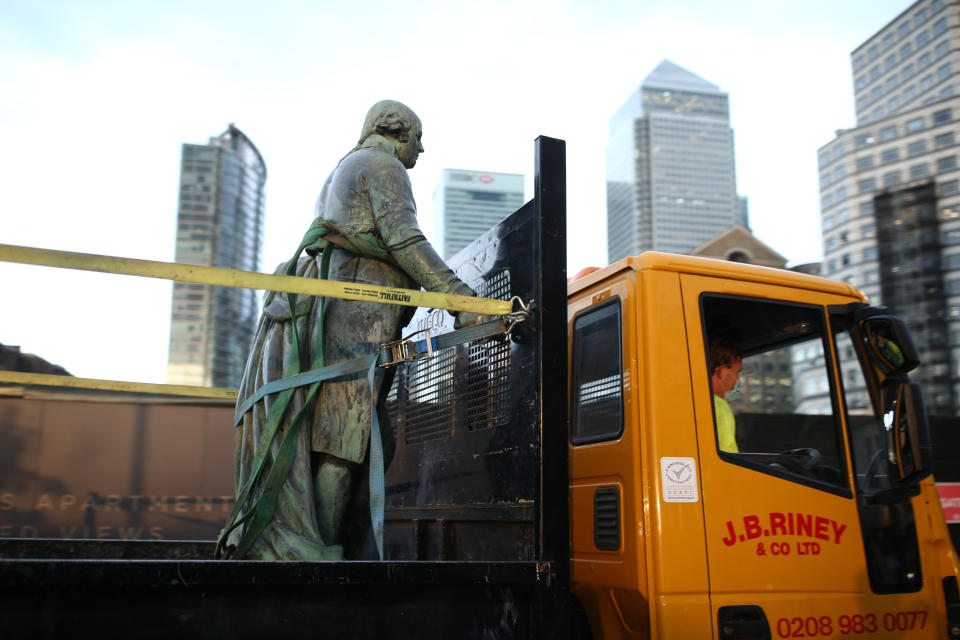Statue of slave owner Robert Milligan removed as councils pledge to review other monuments
A statue of a slave owner in east London has been removed following days of anti-racism protests across the country.
The figure of Robert Milligan was taken down from its plinth at West India Quay in the Docklands on Tuesday evening, two days after campaigners tore down a statue of a slave trader in Bristol.
Labour councils have now pledged to begin reviewing more monuments in their areas, while the Milligan removal was part of a ”wider conversation about confronting this part of our history and the symbols that represent it", according to Tower Hamlets mayor John Biggs.
He said: "I know the strength of feeling about this following the removal of a similar statue in Bristol, and we've acted quickly to both ensure public safety and respond to the concerns of our residents, which I share.


"The East End has a proud history of fighting intolerance. We now need a wider conversation about confronting this part of our history and the symbols that represent it."
Earlier on Tuesday, the Local Government Association's Labour group said that after consulting with all Labour council leaders there was "overwhelming agreement" to listen to and work with local communities "to review the appropriateness of local monuments and statues on public land and council property”.
It followed a similar decision by the mayor of London Sadiq Khan after his office announced that the newly formed Commission for Diversity in the Public Realm will review landmarks in the capital, including murals, street art, street names, statues and other memorials.
Tweeting a video of the moment the Milligan statue was taken down, Khan said: "It's a sad truth that much of our wealth was derived from the slave trade – but this does not have to be celebrated in our public spaces.”
MORE: People with psychopathic traits 'are more likely to ignore lockdown
The removal came after the Canal and River Trust charity, which owns the land where the statue was located, said it would organise its "safe removal" following a petition launched by local Labour councillor Ehtasham Haque.
The statue of the noted West Indian merchant, slaveholder and founder of London's global trade hub West India Docks stood outside the Museum of London Docklands.


He owned 526 enslaved Africans who were forced to work on his family's plantation in Jamaica, according to the museum, before his death in 1809.
After growing up on the Jamaican plantation, the Scottish slave merchant came to London, where he was the driving force behind the construction of the West India Docks in the capital.
Milligan also has a street named after him in Limehouse.
With the growing surge in support for the Black Lives Matter movement, which has sparked global protests following the death of George Floyd at the hands of Minneapolis police, a number of petitions have emerged demanding controversial monuments in the UK are taken down.
MORE: Coronavirus daily death toll jumps by 286 amid signs pandemic is slowing down
One is calling on Manchester City Council to remove a statue of two-time British prime minister Sir Robert Peel in Piccadilly Gardens.
The petition organiser Sami Pinarbasi described the statesman, who founded the Metropolitan Police Service, as an "icon of hate and racism”.
Similar petitions with the hashtag #RepealPeel have been launched to remove statues in Leeds and Bradford.


Luthfur Rahman, from Manchester City Council, said there should be a city-wide review of statues and urged the public to come forward with their thoughts about who is not being celebrated but should be.
He said "particular thought" must be given to representing "the proud BAME history of Manchester and help to reflect the shared story of our diverse and multicultural city”.
The petitions have drawn inspiration from an anti-racism demonstration in Bristol on Sunday that saw protesters topple the statue of slave trader Edward Colston before throwing it into the harbour.

 Yahoo News
Yahoo News 

